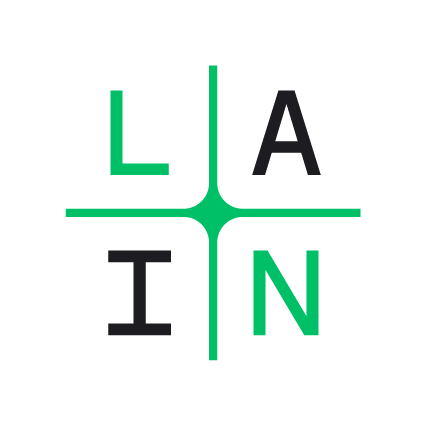Let’s talk about anchors
In this blog, Helen Connor, Communications Lead for LAIN, offers her top tips on how LAIN members can share their stories about how the network is improving the lives of Londoners.
Let’s talk about anchors
People’s lives are being transformed through the work of LAIN members – through the creation of new training and job opportunities, apprenticeships and internships; supporting small businesses to enter their supply chains; mentoring young people; and driving down carbon emissions to help tackle the climate emergency.
It's something for us all to shout about and be proud of!
LAIN members’ commitments to rethinking approaches to recruitment, workforce development, procurement and estates management not only get people into work and create the conditions for inclusive, sustainable economic growth, they also help to plug skills gaps, improve staff retention rates and secure value for money services. This way of working makes good business sense and is good for all Londoners.
Who should we tell?
EVERYONE! Londoners need to hear this and members of staff within our own organisations also need to understand the impact we are having. That means communicating both externally and internally within our organisations.
Collectively, LAIN members represent some of the biggest organisations in London in the public, private, education and faith-based sectors. They employ tens of thousands of people, manage budgets worth tens of billions of pounds, and oversee millions of square metres of real estate. That represents enormous potential to boost local jobs, firms and supply chains, as well as making London a more resilient and sustainable place.
The message is simple: as a member of staff at an anchor institution, you are helping to make London a fairer, greener and more prosperous city. YOU are part of this positive movement.
What makes a good story?
In my experience, telling a compelling and inspiring story about the work of LAIN requires a number of things:
Human stories told by Londoners themselves who have directly benefitted from the work your organisation is doing; like Temitope who got a job with Thames Water after securing a place on the 10,000 Black Interns Programme
Stories of genuine change. For a story to have credibility and be truly inspiring, we need to show that organisations are doing things differently, cutting through bureaucracy, reaching out to communities in new and innovative ways, or making radical efforts to improve. People within your organisations make change happen – whether that’s by committing to interview prison leavers, developing freight consolidation plans to drive down emissions from deliveries, or reducing indemnity insurance levels so more small businesses can bid for contracts. We need to show that these sorts of changes are possible.
Meaningful quantitative data to get across the scale of the impact we’re having, such as; the number of disabled Londoners who have got into work with LAIN member organisations over the past year; the number of contracts that have been awarded to SMEs in the last financial year and the collective value (£) of those contracts; the square meterage of estates that have been decarbonised or the tonnes of carbon that have been saved.
Tell us about your initiatives and your results so we can track progress and accumulate as much evidence of impact as possible.
How do we tell the story?
We need to be telling the story at every opportunity and across all of LAIN’s collective channels:
By talking to colleagues in staff meetings and town halls
By sharing blogs and case studies on websites and intranets
By using the hashtag #LondonAnchors on social media to identify as an anchor institution and be part of the movement.
By using video as much as possible. People often say a picture is worth a million words. And it’s true. We all like to watch TV.
Producing a video does not have to be complex or expensive. A simple piece to camera of someone speaking about their experience can be very impactful - in fact it is often seen as more authentic. If you do need something more professional, you might find resource and capacity to produce this in unexpected places.
In the past we have worked with schools and colleges’ media departments. This can also offer students valuable work experience opportunities and portfolio evidence.
Be part of the debate
Connect with us on LinkedIn to keep up to date with our activities and be part of the latest debates on good work, procurement, net zero and young people.
Subscribe to our newsletter and think about contributing a guest blog for our website.
Become a Communications Champion - make use of our comms toolkit and help disseminate LAIN news via your internal and external communications channels.

